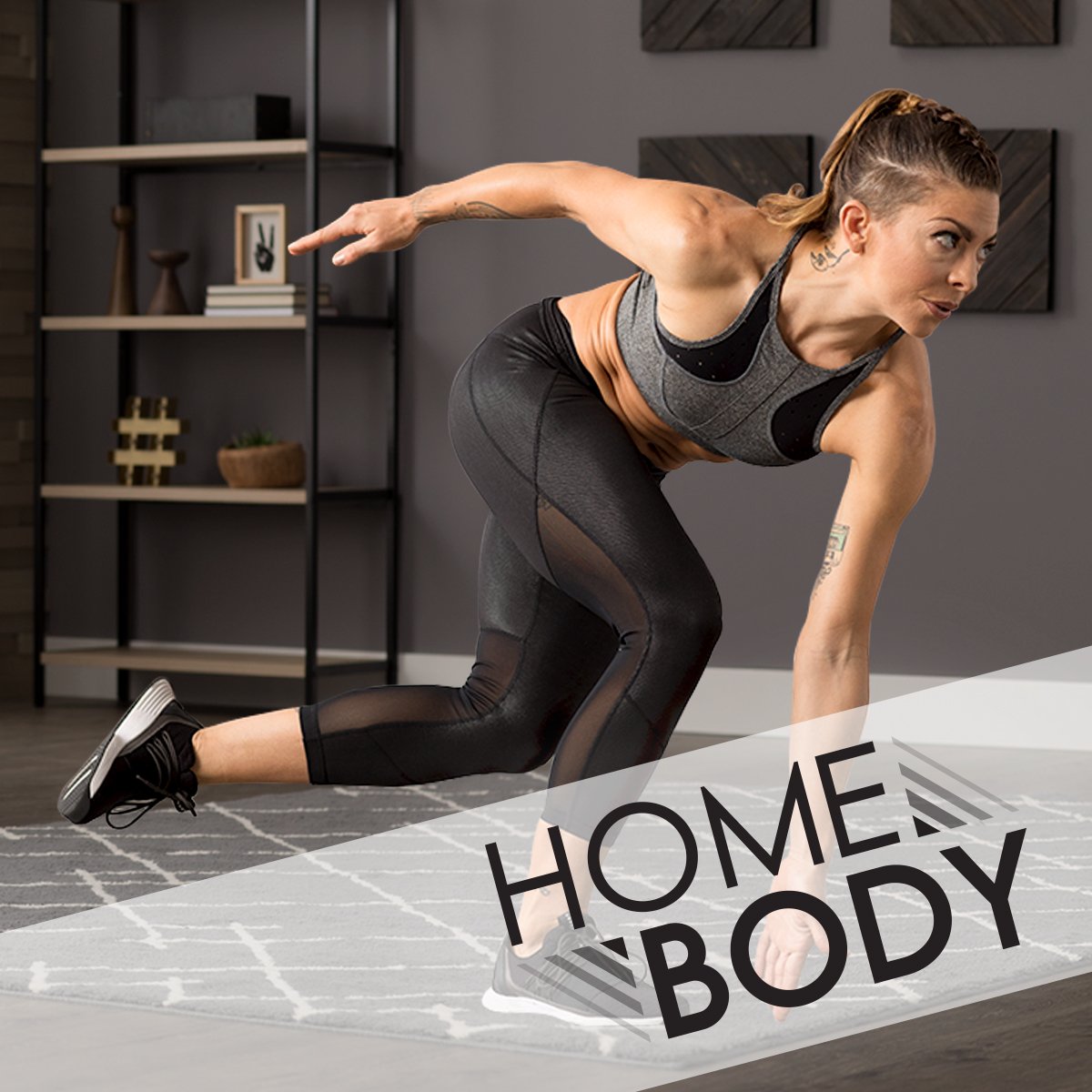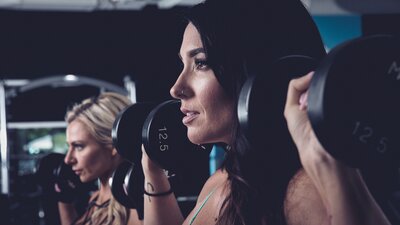Need a bit of a mental lift? Studies show that exercise in the form of resistance training can give you the boost you need to help alleviate the symptoms of some of the most common mental disorders.
With anxiety and depression among U.S. adults becoming more and more common—anxiety disorders are the most prevalent psychiatric disorder—those who suffer from these disorders are seeking help with managing and alleviating the burden of their symptoms.
Most people are aware of the cognitive symptoms of anxiety, like apprehensive and worrisome thoughts and feelings, trouble concentrating, and irritability (or crushing existential dread in my case), but there are also physical symptoms. These include, but are not limited to, muscle soreness, fatigue, and difficulty sleeping. Now mix in a dash of the depressive symptoms—as anxiety and depression often go hand in hand—and include depressed mood, loss of interest or pleasure in activities, and weight fluctuation. Clearly, anxiety and depression have many symptoms that not only affect your mental health, but your physical health and fitness, and therefore your gym performance. But what if your physical fitness is the key to managing these symptoms?
Sometimes having to leave your house and make it to the gym is an unnecessary fitness hurdle. Putting together a home gym can help you stick to your exercise plan!
There is strong evidence showing that not only is physical activity protective against developing anxiety and depression, but physical activity can also help reduce anxiety and depressive symptoms in most sufferers. Systematic reviews and meta-analyses conducted by Brett Gordon, Ph.D., analyzed the results of studies done on the effects of regular exercise on trial participants with anxiety and depressive disorders. In most trials, participants received either a resistance training intervention or control conditions, and then their symptoms were observed. These reviews found that resistance training significantly improved both anxiety and depressive symptoms. By performing his own trial, Gordon also found that twice-weekly resistance training improved anxiety symptoms in both groups.
Although resistance training can help improve anxiety and depression, there are always exceptions to the research and what works for some may not work for all. Personally, though, I find that the focus that comes with a regular exercise regimen helps to alleviate my anxiety symptoms by distracting my mind and body from those intrusive, negative thoughts. Focusing on the things you can control, such as the training program you choose, your personal fitness goals, or any other positive influence that motivates you, can do a world of good for your health and mental well-being. Additionally, a program that can be done in the comfort of your own home, such as my personal favorite Home Body on BodyFit, can keep you moving forward on those days when going to the gym seems like an impossible task. It won't always be easy, but it will be worth it.

For resources regarding anxiety and depression, visit the website of the Anxiety and Depression Association of America: https://adaa.org/
If you or someone you know is experiencing suicidal thoughts, please reach out for help. Call the National Suicide Prevention hotline at 1-800-273-8255 or visit their website at suicidepreventionlifeline.org.

Erin Chancer
Erin enjoys putting what she's learned into practice and looks forward to a career in writing about fitness. She believes we can change lives...



